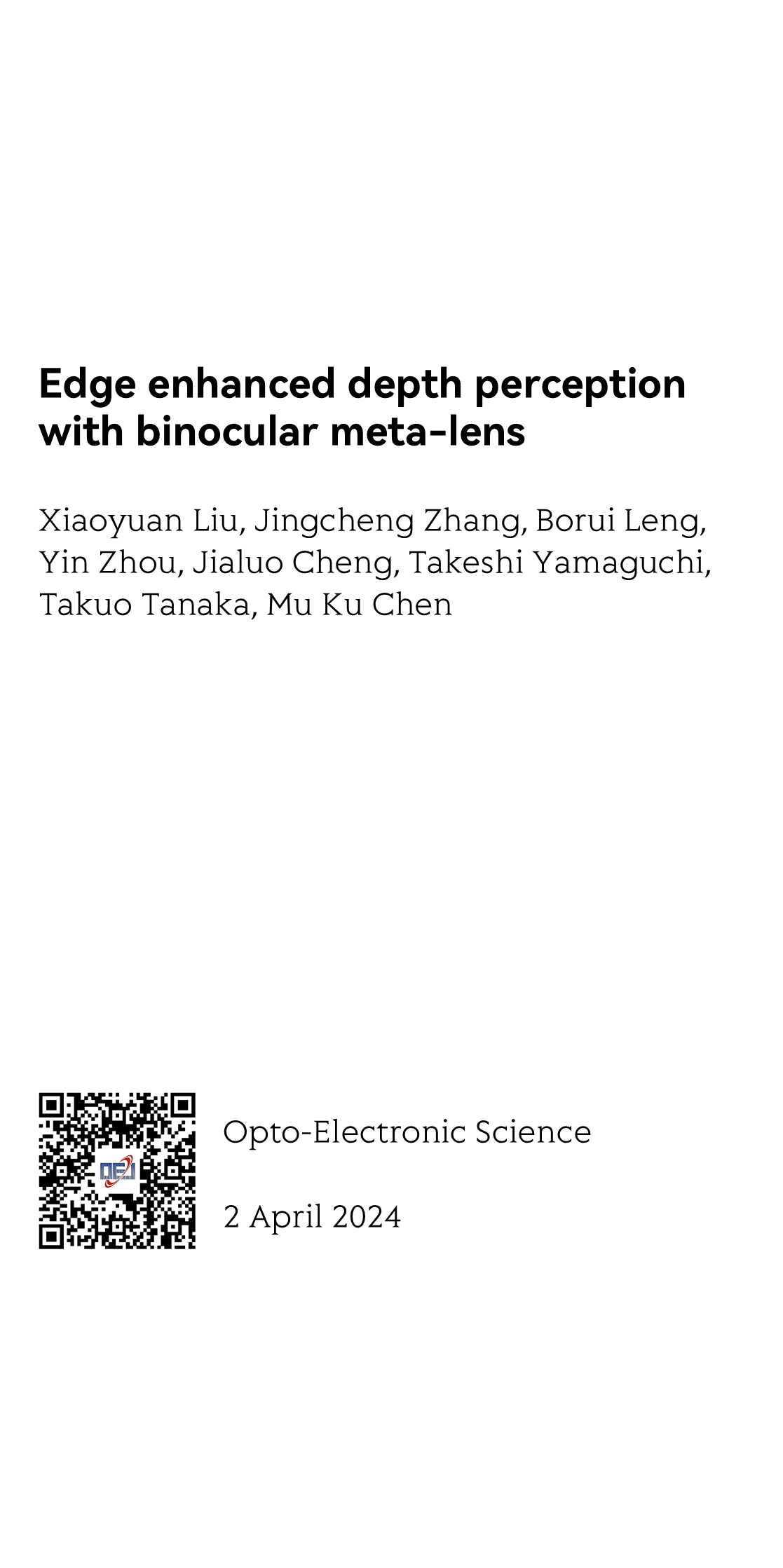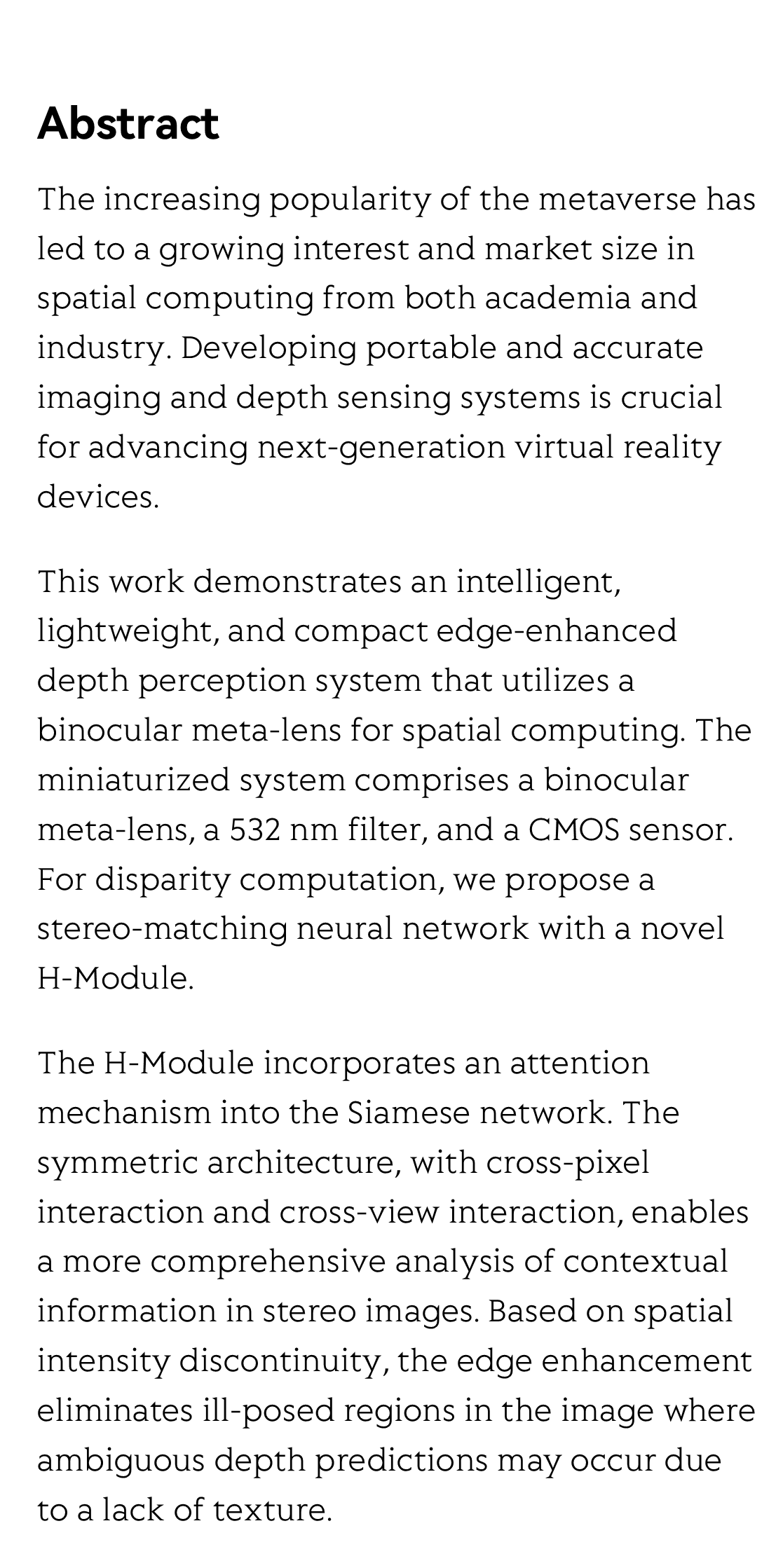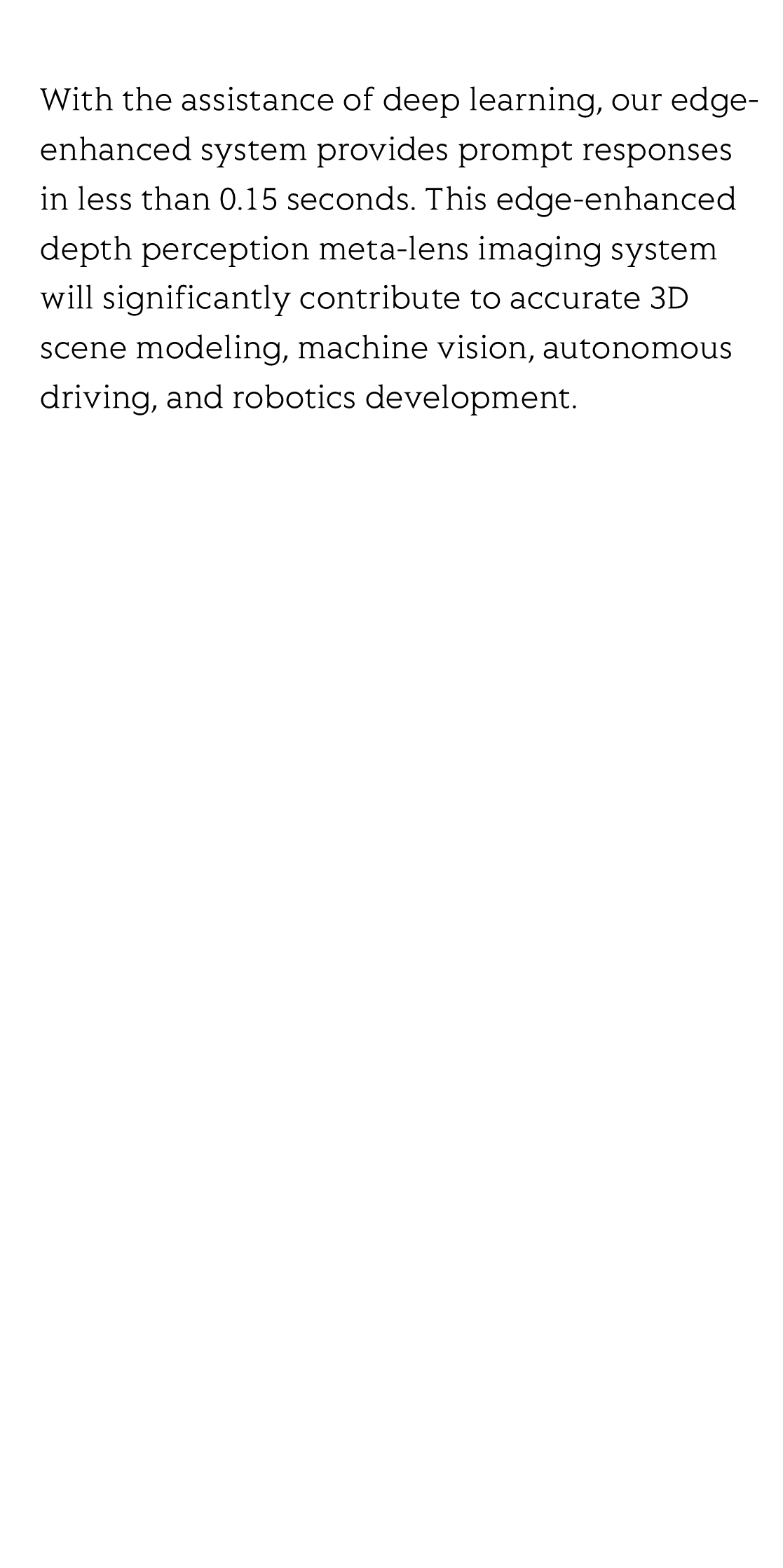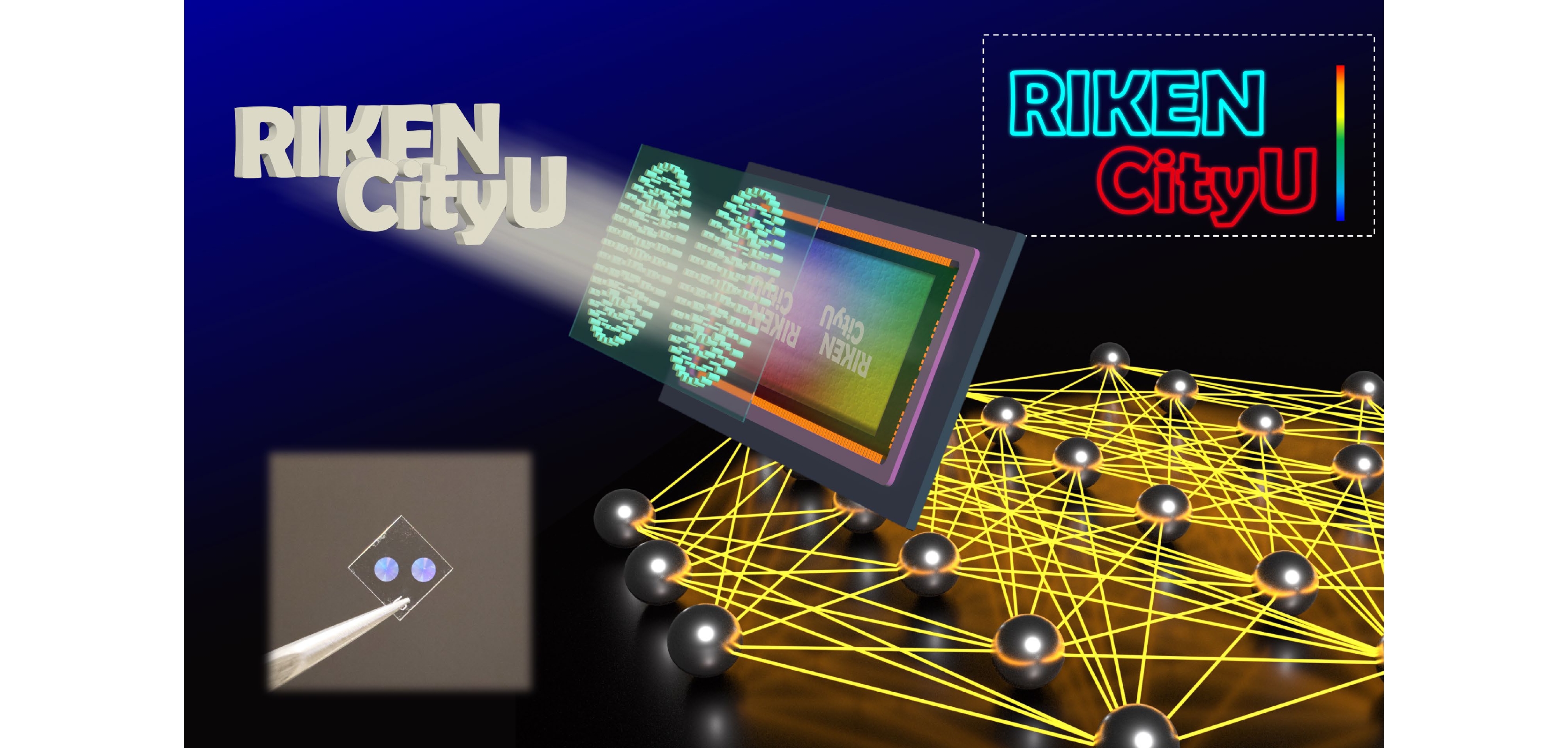(Peer-Reviewed) Edge enhanced depth perception with binocular meta-lens
Xiaoyuan Liu 刘小源 ¹ ² ³, Jingcheng Zhang 张景程 ¹, Borui Leng 冷柏锐 ¹, Yin Zhou 周寅 ¹, Jialuo Cheng 程家洛 ¹, Takeshi Yamaguchi ⁴ ⁵ ⁶, Takuo Tanaka ⁴ ⁵ ⁶, Mu Ku Chen 陈沐谷 ¹ ² ³
¹ Department of Electrical Engineering, City University of Hong Kong, Hong Kong SAR 999077, China
中国 香港 香港城市大学 电机工程学系
² Centre for Biosystems, Neuroscience, and Nanotechnology, City University of Hong Kong, Hong Kong SAR 999077, China
中国 香港 香港城市大学 生物系统、神经科学和纳米技术中心
³ The State Key Laboratory of Terahertz and Millimeter Waves, and Nanotechnology, City University of Hong Kong, Hong Kong SAR 999077, China
中国 香港 香港城市大学太赫兹及毫米波国家重点实验室
⁴ Innovative Photon Manipulation Research Team, RIKEN Center for Advanced Photonics, 351-0198, Japan
⁵ Metamaterial Laboratory, RIKEN Cluster for Pioneering Research, 351-0198, Japan
⁶ Institute of Post-LED Photonics, Tokushima University, 770-8506, Japan
Opto-Electronic Science, 2024-04-02
Abstract
The increasing popularity of the metaverse has led to a growing interest and market size in spatial computing from both academia and industry. Developing portable and accurate imaging and depth sensing systems is crucial for advancing next-generation virtual reality devices.
This work demonstrates an intelligent, lightweight, and compact edge-enhanced depth perception system that utilizes a binocular meta-lens for spatial computing. The miniaturized system comprises a binocular meta-lens, a 532 nm filter, and a CMOS sensor. For disparity computation, we propose a stereo-matching neural network with a novel H-Module.
The H-Module incorporates an attention mechanism into the Siamese network. The symmetric architecture, with cross-pixel interaction and cross-view interaction, enables a more comprehensive analysis of contextual information in stereo images. Based on spatial intensity discontinuity, the edge enhancement eliminates ill-posed regions in the image where ambiguous depth predictions may occur due to a lack of texture.
With the assistance of deep learning, our edge-enhanced system provides prompt responses in less than 0.15 seconds. This edge-enhanced depth perception meta-lens imaging system will significantly contribute to accurate 3D scene modeling, machine vision, autonomous driving, and robotics development.
Separation and identification of mixed signal for distributed acoustic sensor using deep learning
Huaxin Gu, Jingming Zhang, Xingwei Chen, Feihong Yu, Deyu Xu, Shuaiqi Liu, Weihao Lin, Xiaobing Shi, Zixing Huang, Xiongji Yang, Qingchang Hu, Liyang Shao
Opto-Electronic Advances
2025-11-25
A review on optical torques: from engineered light fields to objects
Tao He, Jingyao Zhang, Din Ping Tsai, Junxiao Zhou, Haiyang Huang, Weicheng Yi, Zeyong Wei Yan Zu, Qinghua Song, Zhanshan Wang, Cheng-Wei Qiu, Yuzhi Shi, Xinbin Cheng
Opto-Electronic Science
2025-11-25







